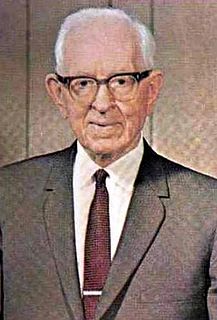A Quote by Terry Eagleton
Successful revolutions are those which end up by erasing all traces of themselves.
Quote Topics
Related Quotes
If they [enlightened men] take any interest in examining, in the infancy of our species, the almost obliterated traces of so many nations that have become extinct, they will doubtless take a similar interest in collecting, amidst the darkness which covers the infancy of the globe, the traces of those revolutions which took place anterior to the existence of all nations.
The most successful revolutions aren't those that are celebrated with parades and banners, drums and trumpets, cannons and fireworks. The really successful revolutions are those that occur quietly, unnoticed, uncommemorated. We don't celebrate the day the United States Constitution was destroyed; it didn't happen on a specific date, and most Americans still don't realize it happened at all. We don't say the Constitution has ceased to exist; we merely say that it's a 'living document.' But it amounts to the same thing.
Before, revolutions used to have ideological names. They could be communist, they could be liberal, they could be fascist or Islamic. Now, the revolutions are called under the medium which is most used. You have Facebook revolutions, Twitter revolutions. The content doesn't matter anymore - the problem is the media.
Those things which we call extraordinary, remarkable, or unusual may make history, but they do not make real life. After all, to do well those things which God ordained to be the common lot of all mankind, is the truest greatness. To be a successful father or a successful mother is greater than to be a successful general or a successful statesman.
To do well those thing which God ordained to be the common lot of all man-kind, is the truest greatness. To be a successful father or a successful mother is greater than to be a successful general or a successful statesman... We should never be discouraged in those daily tasks which God has ordained to the common lot of man... Let us not be trying to substitute an artificial life for the true one.
The most radical division that it is possible to make of humanity is that which splits it into two classes of creatures: Those who make great demands on themselves, piling up difficulties and duties; and those who demand nothing special of themselves, but for whom to live is to be every moment what they already are, without imposing on themselves any effort towards perfection, mere buoys that float on the waves.
I wonder whether any other generation has seen such astounding revolutions of data and values as those through which we have lived. Scarcely anything material or established which I was brought up to believe was permanent and vital, has lasted. Everything I was sure or taught to be sure was impossible, has happened.
It appears to general observation, that revolutions create genius and talents; but those events do no more than bring them forward. There is existing in man, a mass of sense lying in a dormant state, and which, unless something excites it to action, will descend with him, in that condition, to the grave. As it is to the advantage of society that the whole of its faculties should be employed, the construction of government ought to be such as to bring forward, by a quiet and regular operation, all that extent of capacity which never fails to appear in revolutions.
Those who have the command of the arms in a country are masters of the state, and have it in their power to make what revolutions they please. [Thus,] there is no end to observations on the difference between the measures likely to be pursued by a minister backed by a standing army, and those of a court awed by the fear of an armed people.




































